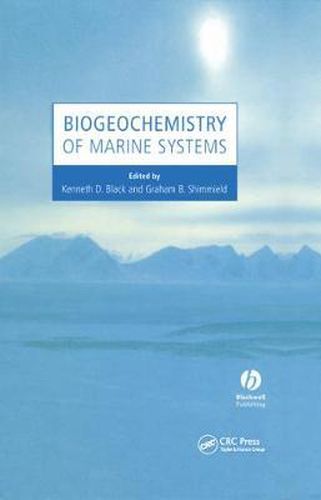Readings Newsletter
Become a Readings Member to make your shopping experience even easier.
Sign in or sign up for free!
You’re not far away from qualifying for FREE standard shipping within Australia
You’ve qualified for FREE standard shipping within Australia
The cart is loading…






Marine systems vary in their sensitivities to perturbation. Perturbation may be insidious - such as increasing eutrophication of coastal areas - or it may be dramatic - such as a response to an oil spill or some other accident. Climate change may occur incrementally or it may be abrupt, and ecosystem resilience is likely to be a complex function of the interactions of the factors and species mediating key biogeochemical processes.
Biogeochemistry of Marine Systems considers issues of marine system resilience, focusing on a range of marine systems that exemplify major global province types. Each system is interesting in its own right, on account of its sensitivity to natural or anthropogenic change or its importance as an ecological service provider. Each contributing author concentrates on advances of the last decade.
This prime reference source for marine biogeochemists, marine ecologists, and global systems scientists provides a strong foundation for the study of the multiple marine systems undergoing change because of natural biochemical or anthropogenic factors.
$9.00 standard shipping within Australia
FREE standard shipping within Australia for orders over $100.00
Express & International shipping calculated at checkout
Marine systems vary in their sensitivities to perturbation. Perturbation may be insidious - such as increasing eutrophication of coastal areas - or it may be dramatic - such as a response to an oil spill or some other accident. Climate change may occur incrementally or it may be abrupt, and ecosystem resilience is likely to be a complex function of the interactions of the factors and species mediating key biogeochemical processes.
Biogeochemistry of Marine Systems considers issues of marine system resilience, focusing on a range of marine systems that exemplify major global province types. Each system is interesting in its own right, on account of its sensitivity to natural or anthropogenic change or its importance as an ecological service provider. Each contributing author concentrates on advances of the last decade.
This prime reference source for marine biogeochemists, marine ecologists, and global systems scientists provides a strong foundation for the study of the multiple marine systems undergoing change because of natural biochemical or anthropogenic factors.